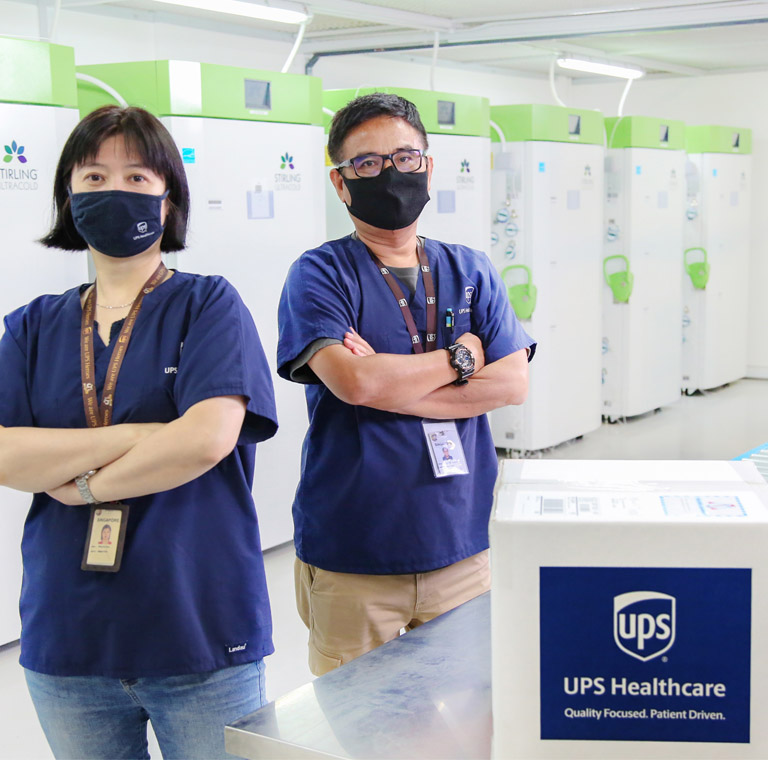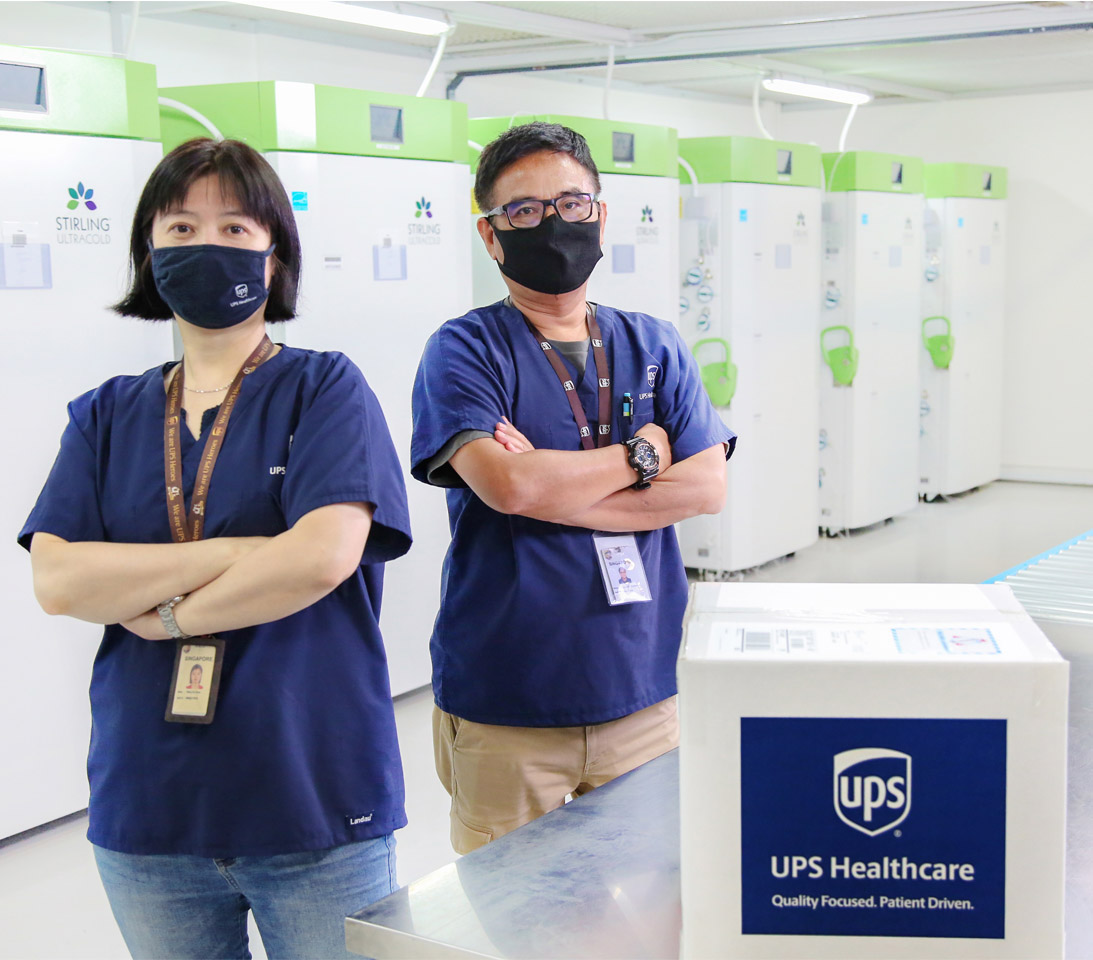“I’ve lost count of the number of times we practiced, and sometimes it doesn’t seem enough, but when the time comes, I know we’ll be ready,” laughed Muhsin bin Sukintal, distribution senior lead at UPS Healthcare in Singapore.
His anticipation is understandable – for the past few weeks Muhsin has been undergoing training to process inbound and outbound shipments of vaccines, to prepare for the life-saving packages he knows will come his way soon.
Together with Wang Xiu Zhen, the UPS veterans of more than 20 years thought they’d seen it all, having handled many critical healthcare shipments like medical implants and pharmaceuticals.
But like the rest of the world, the pandemic took them by surprise. Previously unknown terms like “lockdown” and “social distancing” are now regular conversation, along with “ultra-cold,” for the strict deep-freezer conditions required to store some COVID-19 vaccines.
“I feel really fortunate knowing the work we do here at UPS is part of a much bigger, and very important purpose – fighting the pandemic,” Xiu Zhen said.
As a global air hub, Singapore is aiming to ramp up its cold storage capacity at Changi Airport to become a COVID-19 vaccine distribution hub for Southeast Asia.
UPS aims to support the country’s ambitions by deploying ultra-low temperature freezer farms at its dedicated healthcare logistics facility in Singapore. Just slightly larger than an average household refrigerator, the freezers come with surprising storage capacity – a single unit can store more than enough doses to inoculate the entire population of the Pasir Ris neighborhood in Singapore, where Muhsin lives. (Roughly 148,000 people.)
Beyond storing and transporting vaccines, UPS Healthcare’s network within a network has also delivered important supporting elements for administering COVID-19 vaccines, such as syringes, diluents and accompanying medical supplies.
Its continued success in COVID-19 vaccine deliveries is also creating long-term value for the future delivery of new drugs, especially biologics, which make up more than half of all new drugs in the pipeline.


